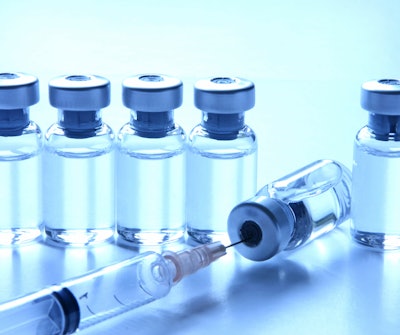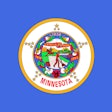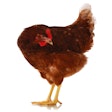
Vaccination against highly pathogenic avian influenza (HPAI) may be necessary to stop the spread of the disease and potential spillover into new species and meets all criteria for safe trade when implemented properly, the World Organisation for Animal Health (WOAH) advocated in a policy brief published December 28, 2023.
“There has been a global rise in HPAI outbreaks and an increase in the genetic diversity of circulating virus strains. Thus, the use of sanitary control measures alone may no longer be a sustainable solution to effectively contain the disease,” the statement said.
“However, poultry vaccination can no longer be excluded from the available alternatives and should be considered a complementary tool.”
In addition to reduced virus circulation within and between flocks and lower risk of spillover to wildlife, vaccination against HPAI could reduce economic losses when it comes to both bird death and trade disruption, lower the risk of human exposure to avian influenza, minimize the environmental impact by reducing the risk of spillover to wild animals and incentive innovative research to maintain the efficacy of vaccines over times.
When properly implemented, HPAI vaccination is compatible with WOAH’s international standards for safe trade. HPAI vaccination “should be considered as part of a broader disease prevention and control strategy” that includes biosecurity, sufficient surveillance capacity and a commitment to ensure data collection and traceability throughout the entire process, the agency noted.
“Ultimately, multilateral dialogue and adherence to WOAH standards are key to ensuring that if a country decides to introduce vaccination against avian influenza, it will be carried out appropriately, without sanitary risks and will not form an unnecessary barrier to safe trade. Efforts should be made to maintain open lines of communication, thus minimizing trade disruption while protecting animal health and welfare, as well as human and environmental health,” according to the statement.
More than 137 commercial poultry flocks and approximately 19.7 million birds in the U.S. were affected by HPAI in 2023, according to the United States Department of Agriculture (USDA) Animal and Plant Health Inspection Service (APHIS).
View our continuing coverage of the global avian influenza situation.
To learn more about HPAI cases in commercial poultry flocks in the United States, Mexico and Canada, see an interactive map on WATTPoultry.com.



















